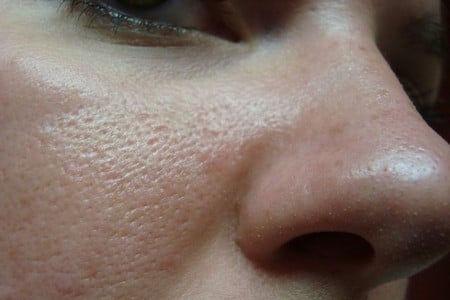.
The topic of the dangers of smoking, as well as the thesis about whether smoking helps you lose weight, has been repeatedly raised in recent years. Many people have given up their addiction in favor of a healthy lifestyle. But more than half of people are faced with the problem of gaining excess weight. This applies to the fair sex. It has been scientifically proven that the female body is more susceptible to the formation of fatty layers.
Weight control method
Contrary to public opinion, smoking helps control weight gain in smokers. But this leads to more serious consequences: disruption of the functioning of the cardiovascular system, as well as the formation of malignant tumors. In addition, a number of other unpleasant consequences, such as an unpleasant odor and tooth decay, prevent smokers from living a full life. In addition, smoking is a factor influencing weight gain.
- First of all, it should be noted that smoking burns calories. Nicotine increases heart rate and also helps speed up metabolism. So when you quit smoking, the number of calories you burn decreases. To stabilize metabolism, a certain period is required, which takes from two weeks to a month.
- Smoking also suppresses the feeling of hunger. Substances in cigarettes promote the production of glycogen in the liver, which leads to an increase in blood sugar levels. When a person quits smoking, his appetite increases, as a result of which extra pounds appear. If you exercise regularly, this problem will bypass you.
- In addition, tobacco products increase the level of the joy hormone in the blood, which leads to high spirits and increased productivity. Thanks to this effect, the process of withdrawal is incredibly difficult, the person feels a loss of strength, and possibly a depressed mood. In order to improve their mood, people try to eat away their sadness with various cakes and pastries. This “treatment” creates a link between smoking and obesity.
- Smoking blocks the tongue's taste buds, so you can barely taste food. People who quit smoking note that once they taste food, they cannot stop and eat much more than normal. With clean receptors, even the most ordinary coffee seems incredibly tasty.
- Smoking also affects the functioning of the gastrointestinal tract, because an insufficient amount of components is produced for the complete digestion of food.
In addition to the above, cigarettes occupy the mouth and hands, against the background of which psychological dependence is developed. Without noticing it, people reach for food. Over time, such overeating leads directly to obesity. This habit must be fought. First, you need to replace the sweets:
- fruits;
- berries.
After some time this needs to be eliminated.
How to quit smoking correctly?
Introducing a strict diet at the same time as quitting smoking is a waste of time. Combining two difficult tasks usually leads to failure. So it’s better to plan everything in advance: for example, change your food preferences a few weeks before giving up cigarettes. If you have already quit smoking, then simply adjust your diet towards larger, but less calorie meals. Replace sweet tea and coffee with plain water and drink at least 2 liters of fluid per day. Eat more, but with benefit. To do this, it is enough to replace fast carbohydrates (chocolate, cookies and other sweets) with complex ones (cereals), sugar with honey or a sweetener, and change the fat content of dairy, fermented milk, meat and fish products consumed. Also, eat vegetables. If your hands involuntarily reach for food, eat carrots instead of chocolate, some prunes or dates instead of sweets, chew seeds instead of candy. It's not that difficult, you just need to do a little work for yourself (washing and peeling a carrot is more difficult than unwrapping a chocolate bar).
And remember that what you eat should be eaten slowly, chewing well, and not hurriedly. Try to develop an optimal nutrition plan for yourself - once a day. And the more often you eat, the smaller your portions should be. The diet must include vegetables and fresh herbs in any quantity, mineral water and unsweetened fruits - green apples, maybe grapefruits. By the way, mineral water with a high content of magnesium is useful for relieving stress and good sleep.
If you can't live without candy, always carry sugar-free candy with vitamins and herbal extracts. They can be bought at any pharmacy. To prevent depression caused by a lack of nicotine, take vitamin C - it helps fight nicotine addiction.
Go to the gym or do aerobics at home. If you feel very nervous, try yoga or Pilates. Be sure to walk in the fresh air, preferably an hour and a half before bed. Running, swimming and exercise bikes will help you burn extra calories in a timely manner. And don’t keep yourself in a black body, let your body eat as much as it wants, just watch the quality of the food you eat.
This lifestyle, which is unusual for many people, will have to be maintained for a long time, two years - that is how long the risk of gaining excess weight remains after quitting smoking. It is important that these two years do not turn into continuous suffering. Therefore, you need to choose both food and sports to your liking. In addition, try to perceive the transition to a healthy lifestyle as a rebirth, a new step towards a good life. After a few weeks, you will develop the habit of eating healthy. It is quite possible that you will like it so much that you will no longer want to give up this lifestyle. And it won’t hurt all members of your family to switch to high-quality nutrition and reasonable physical activity.
Lipid metabolism
Getting rid of nicotine addiction does not mean that you will begin to gain weight at lightning speed . Statistics show that only one out of three people who quit smoking gains weight. For the remaining two, the weight decreases or remains the same. Weight changes are purely individual, and lipid metabolism is to blame.
Lipids are various fats and their acids. They enter the body through food, and are also partially produced by liver cells. These substances perform an energy function, accumulating in the form of fatty deposits, and at the time of need they are released, turning into energy. If lipid metabolism is disturbed, increased fat burning is possible, which leads to sudden weight loss or an inhibited process of fat burning. Fat deposits can be deposited in problem areas.
Scientists have found out what is more harmful - obesity or smoking?
“While the fat man dries, the thin man will die.” Researchers from the USA have refuted the truth of this proverb. They found that obese people have poorer health than even smokers.

What is more harmful – obesity or smoking?
A group of scientists from Cleveland University and New York College concluded that being overweight has a more negative impact on life expectancy than smoking. Experts came to this conclusion based on data obtained from studying the causes of mortality among US residents and the influence of modifiable behavioral risk factors on them for the period from 2014 to 2021.
“At the end of the analysis, it turned out that the life of a smoker lasts on average 15 years less than the life of a person leading a healthy lifestyle. However, obese subjects showed even lower results,” the scientists said about their finding.
It turned out that the negative health consequences associated with excess weight caused more damage to the main systems of the body than the habit of smoking. Such consequences affected the cardiovascular system, the musculoskeletal system, and the digestive tract, doctors explained.
According to them, the digestive system suffers especially badly due to obesity. The microflora in it changes, and these changes in the bacterial composition lead to serious problems with the body, experts said. (READ MORE)
Quitting a habit without consequences
Quitting smoking is difficult, but it is important to remember about the health of your own body, this guarantees many years of life. It is necessary to realize the need to give up addiction, convince yourself that the harm caused to the body is absolutely not worth the figure that you are trying to maintain. And it is also important to accept the fact that smoking does not affect a person’s weight, and giving up this habit does not mean gaining excess weight.
If you are afraid of gaining a couple of kilograms, you need to follow certain rules that will maintain your figure and also save you from the addiction.
- Get rid of your addiction gradually by daily reducing the number of cigarettes you smoke per day. By abruptly quitting a bad habit, you run the risk of experiencing withdrawal symptoms, which can lead to overeating due to stress in the body.
- In parallel with withdrawal, you need to contact a nutritionist who will draw up an individual nutrition program. This will help you find the desired figure, cleanse your body, and also speed up your metabolism.
- Physical activity is a necessary part. An active lifestyle will not only help you lose weight, but also improve your overall health. Choose the sport that suits you. This could be fitness, swimming, boxing, dancing - whatever brings you pleasure. The regularity of training should not exceed three times a week.
- Forget addiction. Create conditions that will rid you of memories of cigarettes. Find a hobby, start a new project, take on an extra job. It is necessary to distract your consciousness from the unwanted object of attention.
Features of the health of a smoker-athlete
Of course, it is difficult to judge all active athletes, but it is worth providing some assistance to those who are both involved in bodybuilding and continue to smoke.
Let's start with well-known facts. This information does not have much effect on convincing the most heavy smokers, because the full range of harm from actively consumed nicotine does not occur immediately and clearly, but in a fairly distant future. The appearance of the lungs of even a non-heavy smoker is quite different from the lungs of a person who does not suffer from this infectious habit. In most cases, it is bluish in color, completely covered with black dots. When these points are opened, you can see a small drop of an almost black substance consisting of tar and resin. They take an incredibly long time to leave the body. It will take years for this dirt to completely leave the lungs after quitting smoking.
Now it is worth considering the direct consequence of the above constant lack of oxygen. If you carefully study smoking and gaining muscle mass, you will understand that oxygen is actively involved in the metabolic process. The more he participates before/after training, the higher the likelihood of increasing muscle volume.
In addition to the obvious harm, which is clearly manifested and clearly visible, there are all kinds of hidden harm from smoking cigarettes. Various researchers have conducted many experiments demonstrating a decrease in the hormone testosterone in smokers. Moreover, this decrease is by no means a joke. When figuring out how cigarettes affect muscles, you need to remember that testosterone is responsible for the process of developing new muscle tissue. The more volume the body produces, the more prominent the biceps will look over time during training.
What happens to active smokers? Again, bad luck along with wasted time working on machines and dragging the barbell. The body has nothing to help the muscles so that enough stimulating substances are produced during training. Therefore, smoking and muscles are incompatible concepts. The only solution for an athlete who smokes is to completely stop using cigarettes. If this is not convincing evidence of whether smoking affects muscle growth, then let's move on.
The first and main reason for quitting smoking is the claim that people who suddenly quit smoking gain excess weight too quickly. This problem especially affects women and men under 30 years of age.
Smoking prevents the body from gaining weight for several reasons:
- Calories are removed from it along with nicotine.
- Smoking reduces appetite.
- Nicotine contributes to intoxication of the body.
- Nicotine is a kind of drug that can satisfy some physiological needs of a person, thereby replacing the need for food.
- Tobacco smoke raises blood glucose levels. This glucose is perceived by the body as glucose obtained from food.
- Smoking speeds up metabolic processes. All useful substances, without having time to be absorbed, quickly burn and are excreted from the body.
Over time, a heavy smoker's body can become so clogged that its enzymes and calories are unable to remove all the nicotine. The consequence of this may be intoxication, during which beneficial substances will not be able to be absorbed and will begin to be deposited in the form of fat accumulation.
Often in stressful situations, a non-smoking person is able to gain excess weight by eating food. In return, the smoker, finding himself in the same situations, will smoke several times more than usual, thereby further poisoning his body and preventing food from being absorbed naturally.

There is an opinion that smoking can also increase weight. This is due to the ability of nicotine to disrupt metabolic processes. Many people who have been smoking for years may not even realize that fat deposits and a big belly can be a consequence of their favorite habit. Sometimes, nicotine interferes with the breakdown of fats.
They can be eliminated from the body, or they can remain there and gradually accumulate. Which will naturally cause weight gain over time. And over the years it can lead to obesity. As a consequence, diseases of the cardiovascular system, diabetes, lung and breast cancer may occur.
It is important to remember that smoking primarily affects not a person’s weight, but his health.
Why doesn't this help?
Also, from smoking, a person becomes lazy and lethargic, and therefore it actively decreases greatly, which only increases weight gain for obvious reasons, so that they even get fatter from this, and they get fatter to a considerable extent. You can ruin everything very badly.
Another negative point is carbon monoxide, which, among other substances, is contained in tobacco smoke. It provides a very bad service - it disrupts the transport of oxygen to the cells of the body, and this actually helps to reduce the speed of metabolic processes.
It is also important that often a decrease in body weight during smoking occurs due to muscle mass rather than fat mass - besides the fact that, for obvious reasons, this is generally bad for health, muscles are also the main consumer of energy, and therefore weight loss in further slows down. Or you can even start typing it
What is more harmful – obesity or smoking?

According to WHO experts, a third of the world's population (36.9% of men and 38% of women) suffers from excess weight. Based on such data, it is not surprising that recently scientists from all over the world have been paying a lot of attention to studying the causes of obesity and its impact on human health.
Thus, a recent joint study by specialists from the University of Cleveland and scientists from New York College demonstrated that being overweight has a more negative effect on life expectancy than smoking.
Experts came to these conclusions by analyzing data for the period from 2014 to 2021, obtained from studying the causes of mortality among citizens of the United States and the influence of modifiable behavioral risk factors on them.
It turned out that the life of a smoker lasts on average 15 years less than the life of a person leading a healthy lifestyle. But obese subjects showed even lower life expectancy rates.
Also, the researchers recalled the detrimental effects of excess weight on the functioning of the cardiovascular system, musculoskeletal system and digestive tract.
(Visited 18 times, 1 visits today)
What goes away with the kilograms
So does smoking help you lose weight? This is a wrong statement, since a smoker, in addition to being “slim,” acquires health problems. After quitting smoking, people take a long time to return to normal, and one of the troubles is a very rapidly increasing body weight.
So, how does smoking affect your weight and the body as a whole:
Cheating the stomach. In the process, the smoker begins to produce saliva, which gives a signal to the stomach about the imaginary arrival of food. Since this does not happen, due to the aggressive effect of hydrochloric acid on the walls of the organ, wounds and cracks appear on the mucous membrane. Since a cigarette artificially replaces food, a person does not gain weight. Tobacco control. A cigarette smoker is forced to deal with the negative effects of the poison every day, so calories physically cannot accumulate. And after quitting smoking, people rapidly gain weight. Relief from stress. Some people eat sweets when they are nervous. But those who prefer to smoke cigarettes can do just fine without it, because smoking itself is calming. Raging hormones. As a result of smoking, hormonal imbalance occurs, which results in an acceleration of metabolism, which does not allow calories to be absorbed in the body. But this failure gives the opposite results, “depositing” fat in unwanted places, while distorting the silhouette. This happens when nicotine interferes with the breakdown of lipids, which causes them to accumulate, causing weight gain. Lack of oxygen. Having received less of the substance, the skin reacts with a deterioration in color, loses turgor, and acquires an “orange peel” appearance.
In this case, low body weight does not matter - a cigarette smoker still looks unimportant.

Smoking and weight do have a certain relationship, but the problems that arise among smokers are very serious. Endocrine disorders, damage to the walls of the stomach, exhaustion of the body's resources, dull appearance, yellow complexion, hoarse voice, smoked teeth and fingers, cancer, diabetes - this is an incomplete list of problems awaiting those who prefer to smoke cigarettes.
Positive correlation - diabetes
Even this assumes, of course, that smoking actually reduced the risk of diabetes.
But that's not true! For diabetes, the association goes the other way.
Carol Willey, Patrick Bodenmann, William A. Ghaly, Peter D. Faris, Jacques Cornuz, Active smoking and risk of type 2 diabetes: a systematic review and meta-analysis, JAMA 2007; 298(22):2654-2664. doi:10.1001/jama.298.22.2654
Smokers are more likely to get diabetes. This stupid risk reduction technique won't get you out of the frying pan and into the fire - it will leave you in the frying pan and into the fire!
Smoking reduces the risk of developing joint diseases
Men who smoke are at much lower risk of needing surgery for joint problems than men who have never smoked, a new study has found.
The study from the University of Adelaide in Australia will appear in the July issue of the journal Arthritis and Rheumatism. What's the connection? Knee problems most often develop in those who are obese or who are active runners. As a rule, smokers run less often, and their chances of gaining weight are much lower. However, after analyzing age, weight and amount of physical activity, scientists are still at a loss to explain why smoking has little protective effect against osteoporosis. It is possible that the nicotine contained in tobacco protects cartilage tissue from damage.
What experts say
At the same time, smoking is not always accompanied by slimness. Long-term smokers often experience serious hormonal imbalance, when the body can no longer fully process nutrients. Therefore, even in those people who eat relatively little, the reserves of adipose tissue rapidly increase.
Former smokers also tend to gain weight faster in the first months. Due to severe stress, the number of meals per day can increase up to 8-9 times per day, because of this, people sometimes gain up to 10 kg in the first month.
However, these problems can easily be avoided if you eat right and remember to exercise. Then the metabolism will soon normalize, the work of the endocrine glands will stabilize, and within a few months the weight will return to normal. And other “bonuses” of a nicotine-free life will be added to a slim figure - radiant, smooth skin, shiny hair, strong nails and excellent health in general.
Many people are interested in the question of the relationship between weight and smoking. Let's try to take it apart. In principle, it cannot be said that a smoker is very different in weight from a non-smoker. You can meet a smoker and a hundred-kilogram one. Yet the average smoker is several kilograms lighter than a non-smoker. But it’s more like an emaciated thinness, a dried out, frail person. Based on this, the question arises: does smoking really affect a person’s weight?
It is worth knowing that nicotine only prevents weight gain. There are several reasons for this:
- loss of appetite;
- intoxication of the body;
- smoke breaks instead of snacks;
- accelerated metabolism;
- drug effect.
Loss of appetite due to smoking can be compared to loss of appetite due to illness. So think about whether you need this kind of weight loss? After all, the harm that nicotine will cause cannot be compared with any kilograms.
Comparing risks
Let's look at the death rate. (I limited myself to evidence in the UK only, because that's where this one lives.)
- 70-75 thousand people in the UK with diabetes die every year...not from diabetes...from diabetes.
- 34,000 people in the UK die from obesity. Without a doubt, there is a coincidence with the above figures.
- Compare this to the 100,000 people in the UK who die from smoking every year.
The idea of exposing yourself to smoking-related deaths to avoid obesity and diabetic deaths is in-f! @ # Ing-sane. Why not douse yourself in gasoline and set yourself on fire to avoid the risk of frostbite?
Changing your diet
Weight and smoking have a close relationship. The human body gradually gets used to both the presence of nicotine and its absence. This means that soon the person will stop gaining weight and will be able to get rid of the bad habit forever.
To quit smoking and not harm your health, it is important to do it step by step:
- change your diet;
- when the smoker loses weight with the help of a balanced diet and gets used to the diet, you can quit smoking;
- There is a risk of gaining weight after quitting cigarettes, but in this case the tested diet will help.
Smoking is harmful to anyone. Nicotine contributes to the development of serious diseases: the sooner you give up cigarettes, the better. Quitting smoking affects weight gain, so many are afraid to quit this habit. Smoking slows down the process of fat accumulation. It is possible to quit smoking and not gain weight. The main thing is to do it step by step and stick to the diet.
The debate about the relationship between smoking and excess weight has been going on for years. Doctors and ordinary people provide scientifically based arguments and real-life examples. The latter are especially controversial: someone, addicted to tobacco, begins to lose weight sharply, while others, on the contrary, find that after a couple of weeks they gain several kilograms. Why is this issue so ambiguous?
Before describing the connection between smoking and weight, we’ll immediately tell you why the consequences of this bad habit have such an ambiguous effect on your figure. The result depends on various factors:
- individual characteristics of the body: some have a fast metabolism, others have a slow one;
- lifestyle: someone smokes, but at the same time moves a lot and even plays sports, while others suffer from physical inactivity;
- type of cigarettes: some prefer light ones, with a minimum concentration of nicotine, which means its negative impact on health will not be so significant, others smoke strong ones;
- number of cigarettes smoked per day.
So there is nothing surprising in the fact that a person smokes, but at the same time has no visible (!) health problems and excess weight. Perhaps he has such a constitution by nature, he spends a lot of time on his feet and his norm is 1-2 light cigarettes a day. Another has both overweight parents, he has a sedentary job, and he doesn’t notice how his pack goes away in a day. Therefore, when such examples are given to you, always be interested in additional factors before drawing conclusions about whether smoking makes you lose weight or gain weight.
Think again, are these kilograms really scary for you?
For some reason, it doesn’t occur to any of you, for example, to lose weight, to become infected with tuberculosis. And what? This is, one might say, the same thing. After all, after a person quits smoking, he gets slightly better, and this is understandable. After all, the body returns to a normal state in which all nutrients are absorbed, and accordingly, appetite increases. That is, we can say that the person is recovering. The same thing happens after any illness, but here’s the thought that: “Maybe I should still get sick?” doesn't come to anyone. Yes, you’d better eat a bar of chocolate and get the same joy as from a cigarette. May you gain two kilograms, but be healthy!! Some even turn to a psychotherapist with this problem.
Be smart, go to a specialist, let him help you develop the right diet for the first months, in which case weight gain will be small. But you will feel much better, because your body will be healthy! And if you also play sports, you will not gain weight at all. Be afraid not of extra pounds, but of the consequences that can literally lead to the “coffin”! Let these words not remain an empty ringing sound in your mind, stop before it’s too late! Now there are many ways to do this: books, patches and much more. You all have families: children, husbands, wives. They really need you! Just gather all your will into a fist! The desire to live must be above all! After all, human life is priceless. Do you have anything to say?
DO YOU WANT TO QUIT SMOKING?
Then download the smoking cessation plan.
With its help it will be much easier to quit.
Many smokers do not even suspect how smoking and weight are connected, someone thinks that only a cigarette prevents him from gaining excess weight, others believe that smoking makes them lose weight, and only a few understand that smoking affects a person’s weight by changing the functioning of his digestive system. tract.
And if smoking reduces weight, it means your stomach and intestines can no longer cope with the load, and the body is gradually depleted; weight gain as a result of smoking signals endocrine disorders and a change in body proportion - many smokers have a “female” figure, as there is an accumulation of fat masses in the lower parts of the body.
Negative correlation - obesity
Regarding obesity, I must admit that there is a connection between obesity and never smoking:
Carol L. Hart, Lawrence Gruer, and Graham S. M. Watt. Causes of specific mortality, social status and obesity among women who have never smoked: a 28-year cohort study BMJ. 2011; 342: d3785. doi:10.1136/bmj.d3785
(Note: I couldn't find a measure of statistical significance for this anywhere - I would have expected it in Figure 1 or Table 2).
Of course, this was the line in the study that media outlets like the BBC followed, even as they reminded people:
In fact, the same set of data supports the idea that any benefits of smoking are outweighed by the disadvantages:
Lawrence Gruer, Carol L. Hart, David S. Gordon, and Graham S. M. Watt. Impact of tobacco smoking on survival in men and women by social status: a 28-year cohort study BMJ. 2009; 338: b480. doi:10.1136/bmj.b480











